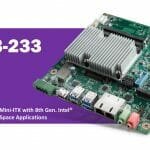We have summarised the differences between M-Bus and MODBUS (Wired and Wireless)
M-Bus Communication
M-Bus is a communication protocol used between meters and the central data collection system or Pre-Payment unit. Widely used on new projects where the building infrastructure can be designed accordingly.
M-Bus is available on a wide variety of gas, heat, electricity, and cold / hot water meters.
- Transfer of energy or consumption data
- 2-Wire hard wired system or Wireless
- 250 meters per network master (multiple masters possible)
- Up to 2000m cable (2km) per master
Main advantage:
More flexible then MODBUS (EU standard)
with multiple manufacturers meters
 interchangeable within the network.
interchangeable within the network.
Wireless capability.
Advantages
- Simple principle – easy to install
- Bi-directional communication for setup and updates
- Robust data collection
Disadvantages
- Costly to change if not installed correctly from the design phase
- Sensitive on electro-magnetic interference
- More difficult / costly in retrofit applications
MODBUS/BACnet Communication
BACnet or MODBUS RS485 is a communication protocol used between mainly electricity meters but also widely used on heat systems involving a central building management services (BMS)
MODBUS is widely available on electricity meters which is where the communication protocol was developed. It is now being developed on other metering devices involving heat networks.
- Transfer of kWh data, kV factors, Single Phase, Three Phase
- 2-Wire / 3-Wire hard wired system Max. 250 meters per network master (multiple masters possible)
- Long distance cable capability
 Main advantage:
Main advantage:
Speed of data collection, with large
volumes of data collectable remotely
within a matter of seconds.
Advantages
- BMS Standard so everyone has knowledge
- Fast Data Transfer for instant profiles
- Robust data collection
- Can be mixed with different devices on the same network
Disadvantages
- Costly due to certain equipment required
- More stable if less devices are on multiple MODBUS controllers
- Difficult to setup if no past knowledge

BACnet or MODBUS RS485 is a communication protocol used between mainly electricity meters but also widely used on heat systems involving a central building management services (BMS)
Wireless M-Bus is starting to be widely used on new build systems but mainly on retrofit systems that can’t have a wired network as this would become expensive
- Wireless OMS output that can talk to all OMS data collectors
- Mixed meter manufacturers on the same networks
- Up to 800 meters on one network
Main advantage:
No wires installed, installation remote
No disruption to tenants
If you would like to know more about the options for remote reading and data collection, give our team a call.
DMS Metering Solutions / 01773 534555 / www.dmsltd.com / sales@dmsltd.com





